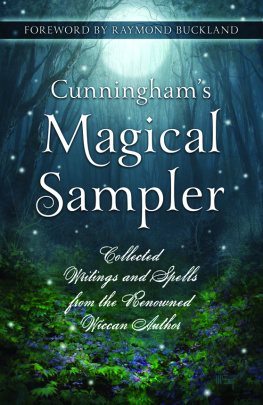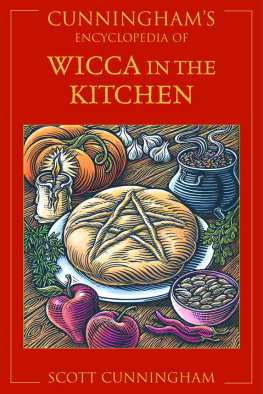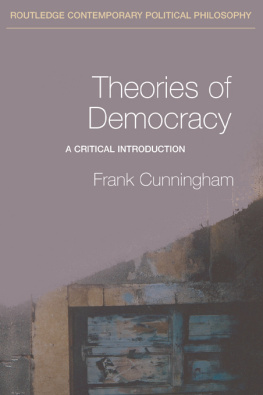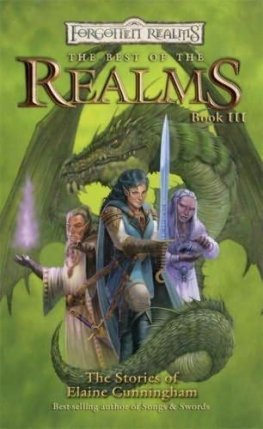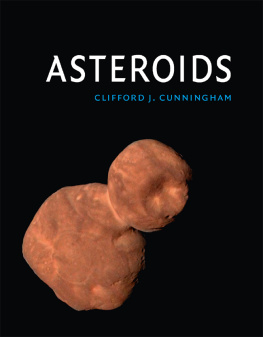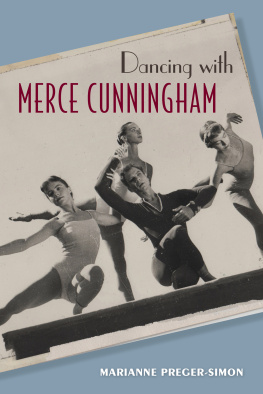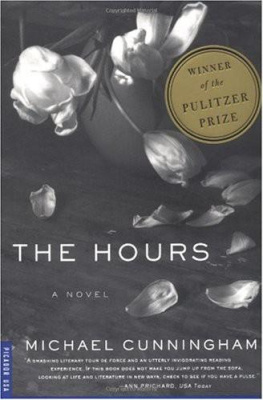Cunningham - Lost Son
Here you can read online Cunningham - Lost Son full text of the book (entire story) in english for free. Download pdf and epub, get meaning, cover and reviews about this ebook. year: 2007;2008, publisher: Unbridled Books, genre: Detective and thriller. Description of the work, (preface) as well as reviews are available. Best literature library LitArk.com created for fans of good reading and offers a wide selection of genres:
Romance novel
Science fiction
Adventure
Detective
Science
History
Home and family
Prose
Art
Politics
Computer
Non-fiction
Religion
Business
Children
Humor
Choose a favorite category and find really read worthwhile books. Enjoy immersion in the world of imagination, feel the emotions of the characters or learn something new for yourself, make an fascinating discovery.

- Book:Lost Son
- Author:
- Publisher:Unbridled Books
- Genre:
- Year:2007;2008
- Rating:3 / 5
- Favourites:Add to favourites
- Your mark:
- 60
- 1
- 2
- 3
- 4
- 5
Lost Son: summary, description and annotation
We offer to read an annotation, description, summary or preface (depends on what the author of the book "Lost Son" wrote himself). If you haven't found the necessary information about the book — write in the comments, we will try to find it.
Lost Son — read online for free the complete book (whole text) full work
Below is the text of the book, divided by pages. System saving the place of the last page read, allows you to conveniently read the book "Lost Son" online for free, without having to search again every time where you left off. Put a bookmark, and you can go to the page where you finished reading at any time.
Font size:
Interval:
Bookmark:
M. ALLEN CUNNINGHAM

This is a work of fiction. Names, characters, places and incidents either are the product of the authors imagination or are used fictitiously, and any resemblance to actual persons, living or dead, business establishments, events, or locales is entirely coincidental.

Unbridled Books
Denver, Colorado
Copyright 2007 M. Allen Cunningham
All rights reserved. This book, or parts thereof, may not be reproduced in any form without permission.
Library of Congress Cataloging-in-Publication Data Cunningham, M. Allen Lost son / M. Allen Cunningham.
p. cm.
ISBN-13: 978-1-932961-52-2 pbk.
ISBN-13: 978-1-932961-34-8 hc
ISBN-10: 1-932961-34-8 hc
Originally published as an Unbridled Books hardcover First paperback edition, 2008
1. Rilke, Rainer Maria, 18751926Fiction. 2. Rodin, Auguste, 1840-1917Fiction.
3. Quartier latin (Paris, France)Fiction. 4. Paris (France) Intellectual life
20th centuryFiction. I. Title.
PS3603.U667L67 2007
813.6dc22 2007000367
1 3 5 7 9 10 8 6 4 2
First Printing
Book design by SHCV
For K, of course
and for the
,
in whom something is rising up that causes you to shiver
RAINER MARIA RILKE (18751926) is widely regarded as the modern master of the lyric in German and one of the worlds greatest poets. He is perhaps best known and loved in the United States for his Letters to a Young Poet, collected posthumously. He is the author of The Lay of the Love and Death of Cornet Cristoph Rilke; Stories of God; The Book of Images; Auguste Rodin; The Book of Hours; New Poems I & II; The Duino Elegies; Sonnets to Orpheus; and a single novel titled The Notebooks of Malte Laurids Brigge.
The following pages represent Rilkes life re-imagined as fiction. All epigraphs are Rilkes as attributed, and further Rilke quotes are incorporated directly into the narrative, distinguished hy italics and full quotation marks. Other italicized passages herein attributed to the character of Rilke are invented. Inspiration for imaginary events has been in most cases the writing of Rilke himself, particularly his novel and some of his ten thousand letters.
We must understand one another or die. And we will never understand one another if we cannot understand the famous dead, those fragments of the past who sit half buried and gesturing to us on memorys contested shores.
Lee Siegel, The Atlantic Monthly, April 1996

I however, Lou, your somehow lost son, not for a long long time yet can I become a sayer, one who foretells his own way, nor a describer of my former fates; what you hear is just the noise of my footsteps, always drawing more and more distant on unsure paths, always drawing away, I know not from what, and whether my steps are bringing me closer to anybody I do not know.
Letter from Rainer Maria Rilke to Lou Andreas-Salom, November 9, 1903

By silent evening I drive down the vineyard road to Muzot. Stand in the narrow byway and stare through summer darkness at your gaunt tower rising from the grapevines. Ancient stone-hewn structure set against the distant granite mountains that rim this valley and look in these nocturnal hours like a phalanx of figures slouching closer at the end of some age-old restlessness. It was refuge from old restlessness you sought in this place. This tower then harbored you night by night in the long-burning work youd awaited through years of war. Upon completion of your last great poems, you opened this rudely canted door to a February night punctured with searing stars. Stepped out into celestial air and stood stroking the towers stones with thanks.
I linger in the dark at the towers lee side. Bats whistling in their blind wheelery through the trees. The musk of grapes wafts from the tangled arbors, and somehow somehow my night swings open to that very night: to you standing in the shadowed yard alone and relieved. How does it happen that eighty years may fall away to this moment? What hatch has clattered free?l have no answer. But there you are: nationless figure in a world gone mad with devotion to country. And I, dark in your darkness, begin to grasp all that has led me here. In these days many things stand for me as they once stood for you, back in the years well before you arrived in this place, back in your haunted time when a young dream-figure by the name of Malte Laurids Brigge moved into your soul as into an ancient room and made you his confessor. Ive been traveling after you and Malte, both.
, in the great fevers of its illnesses, huge indescribable fears stood upon mefears as before something too big, too hard, too near. Deep unsayable fears, I remember them well. And it was these self-generated fears that were now with me as at first, but now they didnt need night and fever for pretext, they caught me in the middle of my days, when I thought myself healthy and courageous, and they took my heart and held it over the void. Can you understand how that is? I would be strange to everything as one dying in strange lands, alone, supernumerary, a fragment of other contexts.
Letter from Rainer Maria Rilke in Paris
to Lou Andreas-Salom, June 1903

It begins with a pale willowy woman of twenty-three. She lies propped on two limp pillows, the bedclothes rumpled at her feet because the cramped room has started to swelter again. Shes been abed since her delivery a week ago. When not dozing she gazes past the footboard to the rail of wainscoting. A bar of yellow dust there, her eye constantly drawn to the spot. The discoloration is becoming a soft torment, beginning to signify some deeper discoloring. A tainted life. Her maimed wishes. She would call Josef in and tell him to be firm with the housekeeperbut could she possibly speak to him of such a trifle at a time like this, with the Madame coming in by the hour only to say the child is worsening? No, Phia fears shed lash out at Josef should she summon him nowwould let slip the melancholy she can hardly sculpt into thought, let alone into suitable words.
She digs her fists into the mattress and raises herself on the pillows. Madame Wertz!
A small bustling noise from the next room, the dull clacking of heels in the hall, then the midwife appears in the doorway, nonplussed, her uppinned silver hair frazzled like a tiara of smoke.
Open the window please, says Phia.
But Frau Rilke, the winter air.
For a moment at least. Im stifling.
Madame struggles with the latch. At last theres a thunderous crack as the sash comes free of the sill. A blade of November windso cold it seems to scorchslices into the room and touches Phias face. The rim of sweat at her nightshift collar tickles like a necklace, blue-feeling.
Has she been sleeping?
In fits and starts, Frau.
As if the child has heard, a pained infant cry comes sawing through the thin wall.
Font size:
Interval:
Bookmark:
Similar books «Lost Son»
Look at similar books to Lost Son. We have selected literature similar in name and meaning in the hope of providing readers with more options to find new, interesting, not yet read works.
Discussion, reviews of the book Lost Son and just readers' own opinions. Leave your comments, write what you think about the work, its meaning or the main characters. Specify what exactly you liked and what you didn't like, and why you think so.

